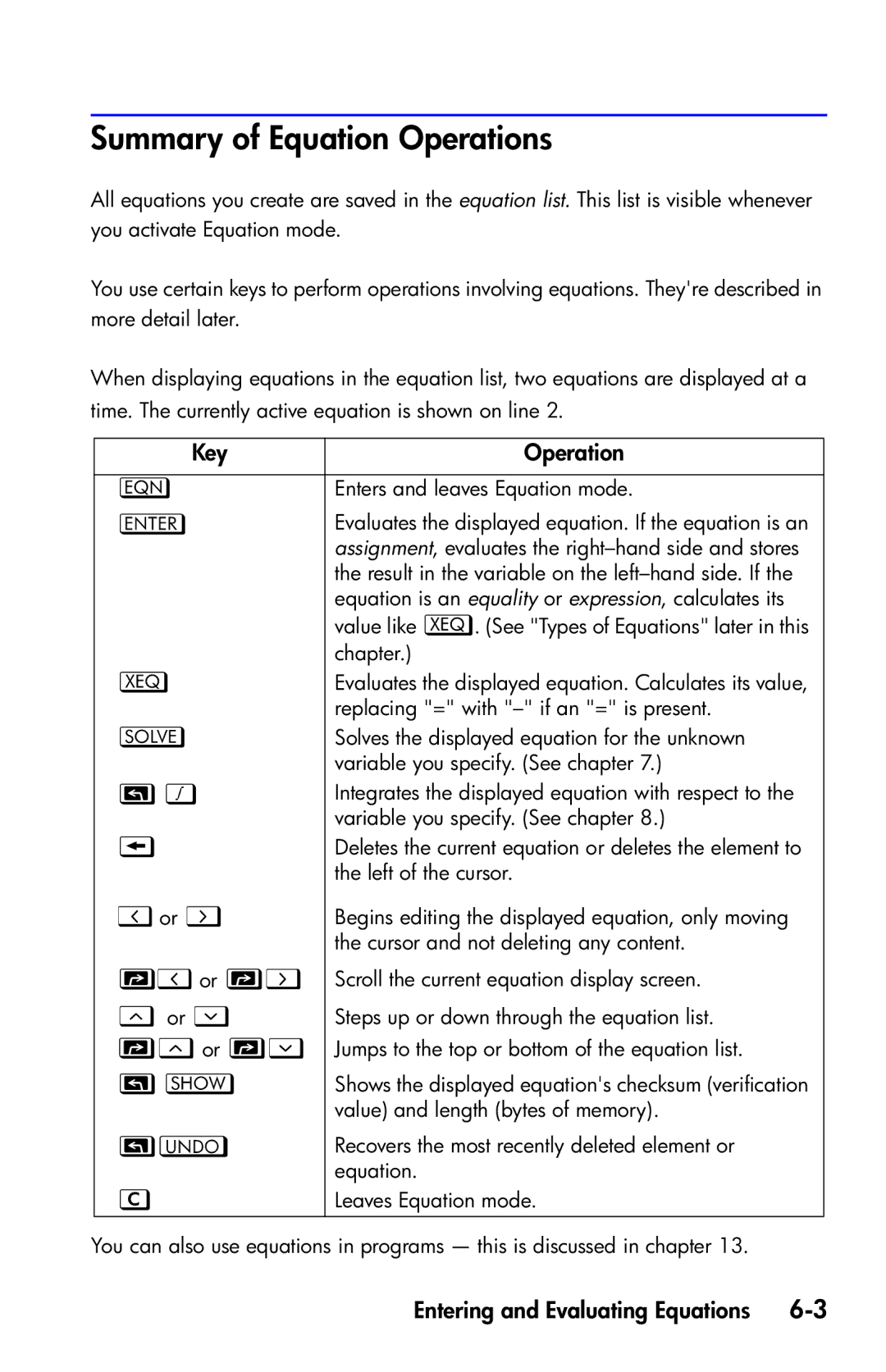
Summary of Equation Operations
All equations you create are saved in the equation list. This list is visible whenever you activate Equation mode.
You use certain keys to perform operations involving equations. They're described in more detail later.
When displaying equations in the equation list, two equations are displayed at a time. The currently active equation is shown on line 2.
Key | Operation |
|
|
| Enters and leaves Equation mode. |
Evaluates the displayed equation. If the equation is an assignment, evaluates the
| Evaluates the displayed equation. Calculates its value, |
| replacing "=" with |
Solves the displayed equation for the unknown variable you specify. (See chapter 7.)
| Integrates the displayed equation with respect to the |
| variable you specify. (See chapter 8.) |
| Deletes the current equation or deletes the element to |
| the left of the cursor. |
Öor Õ | Begins editing the displayed equation, only moving |
| the cursor and not deleting any content. |
Öor Õ Scroll the current equation display screen. | |
×or Ø | Steps up or down through the equation list. |
×or Ø Jumps to the top or bottom of the equation list. | |
| Shows the displayed equation's checksum (verification |
| value) and length (bytes of memory). |
: Recovers the most recently deleted element or | |
| equation. |
| Leaves Equation mode. |
You can also use equations in programs — this is discussed in chapter 13.
